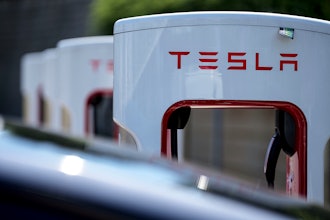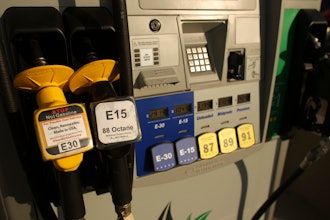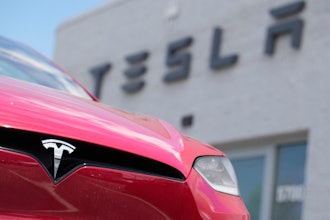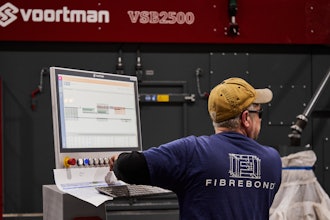BRUSSELS (AP) — Europe is considering limiting the amount of food-based biofuels that can count toward its renewable fuel targets while a drought in the U.S. has pushed up food prices worldwide and millions around the world go hungry.
As part of an effort to reduce greenhouse gas emissions, the European Union had previously decided that 10 percent of the fuel used for transport in the 27-country bloc must come from renewable sources by 2020.
But environmentalists argue that biofuels made from food, like corn and soybeans, may add as much or even more to greenhouse gas emissions as fossil fuels they replace because trees are often felled to grow them. Others have criticized the burning of food while there are still millions who can't afford to eat.
In response, the European Commission, the EU's executive arm, proposed Wednesday that food-based fuels only be allowed to contribute to half of the 10 percent target. The rest should come from more advanced biofuels that don't take up valuable farming land — like algae or waste.
The commission is also suggesting that the efficiency targets that biofuels must reach before they receive subsidies should be increased. Currently, they must emit 35 percent less greenhouse gas than the fuels they replace; that number will rise to 50 percent in 2017 and eventually to 60 percent.
The proposal must be approved by the 27 EU governments and the European Parliament.
"What we are proposing today is not perfect, but it is nonetheless very important," said Connie Hedegaard, the commissioner on climate action. She said that capping the amount of food-based biofuels that can count toward the renewables target would send a signal to producers that they need to start investing in more advanced biofuels. But after 2020, the commission is that food-based biofuels stop receiving subsidies.
Still, environmentalist groups said that the proposal falls well short of what they were hoping for: a metric that takes into account the true climate impact of biofuels — including their gobbling up of land and water — and policies that reflect that impact. Instead, they complain, the Commission is pretending that all biofuels are created equal — and that they're all better than fossil fuels.
The Commission has asked countries to include in their reporting on biofuels the overall impact of the environment, but for the moment it won't affect their eligibility to count toward targets or the way they're subsidized.
"It's a paper exercise," said Robbie Blake, the biofuels campaigner for Friends of the Earth. He said he was still waiting for a system that would ensure that "when claims are being made about how much greenhouse gases are being saved, we know they'll be true."
Friends of the Earth and other groups would like to see food-based biofuels slashed to zero in the EU's targets.
Anti-hunger advocates, like the three U.N. food agencies, are also urging governments to adjust biofuel production requirements in light of the U.S. drought, which is driving up food prices around the world. Currently, 40 percent of the U.S. corn crop goes to ethanol production.
"With close to 900 million people suffering hunger in the world, what is needed is a rapid phase out of these biofuels," said Marc Olivier Herman, Oxfam's EU biofuels expert.






















